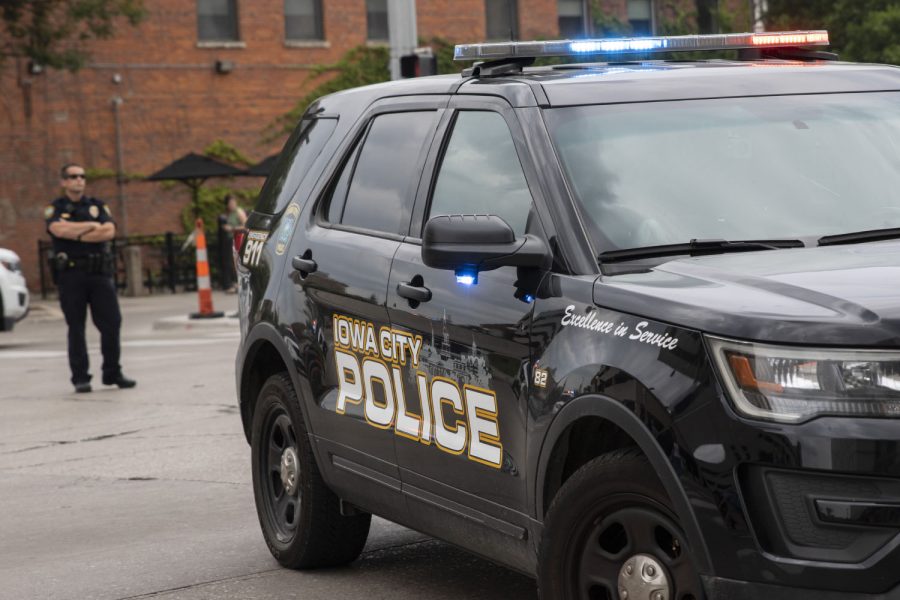Opinion | Mental health workers must respond with, not instead of, police officers
Having mental health professionals respond to crises alone is neither beneficial or safe.
Iowa City Police Department vehicles are seen on July 9, 2019.
December 9, 2020
The Iowa City City council, members of the Iowa Freedom Riders, and others participated in a forum to discuss mental health reform in the Iowa City Police Department. Similar events have happened in New York, where they are planning on replacing law enforcement with mental health professionals — though police will be allowed to join mental health professionals when someone is armed.
Reform is needed, but getting rid of police officers is not the answer. Law enforcement needs to work together with mental health professionals.
Mental health professionals are not trained in law enforcement. It is possible when the 911 call is first made, it is not known the suspect has a weapon. In that case, police will not be present and mental health professionals will not be able to defend themselves.
Some would argue you can just retrain mental health professionals to be law enforcement. As someone who is studying to be one, I have issues with this.
Clinical psychologists already need a Ph.D. Requiring them to receive police training will just be adding another stressor on people who already have to go through the highest level of education. It can also lead to them not getting sufficient training in the career we did choose — something which would harm people with mental health issues.
Plus, I don’t have the personality or physical strength needed to replace police officers. Police need to be strict, physically strong, and tough to do their jobs well. Mental health professionals need kindness, sympathy, and affection.
The people in these two professions are so different personality-wise, replacing one with the other is like replacing sugar with salt.
Also, this won’t have a positive effect on clinician client relationships — which is a critical factor of treatment outcome. Clients will be less likely to open up to their therapist about their struggles if this is also the same person who will show up at their house with a gun if their mental illness causes them to act out dangerously.
I also am curious whether or not this will apply to all mental health professionals or just those who work with a specific range of people with mental illness. Working with someone who has depression is a lot different than with someone who has a severe form of antisocial personality disorder.
Both are people deserving compassion, but denying people with sociopathy and psychopathy are at an increased risk for committing violent crimes is undermining the seriousness of their disorder.
Making someone who has applied cognitive behavioral therapy for depression his or her whole career respond to calls of people with anti-personality disorder committing violent crimes is illogical.
Both police and mental health professionals feel ill equipped to respond to 911 calls about people with mental health issues separately. Colorado’s program of behavioral therapists responding to 911 calls with police officers has been so successful, they want to add 10 more clinicians who do so. Psychologists and police officers should always respond to mental health crises together.
ICPD is considering giving identification cards to people with disabilities so police officers know they have a condition. Police trying to implement reform deserve more appreciation and respect from the mental health community.
Working with the mental health care system can give law enforcement options on how to handle these situations in a way which keeps everyone safe but does not take the life of someone with a mental illness.
Therapists and cops both have needed people skills in handling these situations the other doesn’t. Teamwork between the two would help keep everyone safe and alive.
Columns reflect the opinions of the authors and are not necessarily those of the Editorial Board, The Daily Iowan, or other organizations in which the author may be involved.














